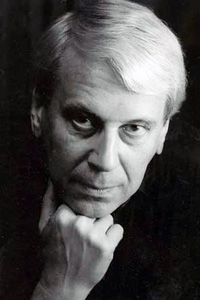I have written an op-ed in tomorrow’s Sunday Telegraph supporting the mass Cage Against The Machine movement, which is staging a worldwide performance of 4’33 in an attempt to produce an alternative Christmas number one.
The CATM uprising (www.catm.co.uk) is aimed at X-Factor and Simon Cowell’s manipulation of the public airwaves. My participation was triggered by the award of the 2010 Turner Prize last week to a so-called artwork that had been anticipated by Cage more than 60 years ago and executed by him in 1952. It signalled, for me, the end of conceptual art.
Read the article
here and respond below.
I have written an op-ed in tomorrow’s Sunday Telegraph supporting the mass Cage Against The Machine movement, which is staging a worldwide performance of 4’33 in an attempt to produce an alternative Christmas number one.
The CATM uprising (www.catm.co.uk) is aimed at X-Factor and Simon Cowell’s manipulation of the public airwaves. My participation was triggered by the award of the 2010 Turner Prize last week to a so-called artwork that had been anticipated by Cage more than 60 years ago and executed by him in 1952. It signalled, for me, the end of conceptual art.
Read the article
here and respond below.
The cultural omnivore Jacques Barzun is 103 this month, the composer Elliott Carter one year younger. Here are two fresh video interviews with these great survivors.
The cultural omnivore Jacques Barzun is 103 this month, the composer Elliott Carter one year younger. Here are two fresh video interviews with these great survivors.
A friend has just unearthed this link to Anna Mahler, Gustav’s daughter, appearing on the game show You Bet Your Life, with Grouch Marx as host.
Hilarious, and so true to life.
A friend has just unearthed this link to Anna Mahler, Gustav’s daughter, appearing on the game show You Bet Your Life, with Grouch Marx as host.
Hilarious, and so true to life.
The composer Boris Tishchenko died in St Petersburg on December 9, aged 71. Close to Dmitri Shostakovich, he wrote a high-risk Requiem set to Anna Akhmatova’s lament for her husband, murdered by the Communist state. His fifth symphony is a maginificent eulogy for DSCH.
Although he was forced to issue a public denunciation of the Shostakovich memoirs that Solomon Volkov published under the title
Testimony, Tischchenko played a vital role in their transmission. It was he who persuaded Shostakovich to persist with his secret conversations with Volkov and he also played a role in smuggling the manuscript out to the West, where it became a massive best-seller, exposing the homicidal inner workings of Soviet culture.
Tishchenko’s own works, hardly heard outside Russia, include two rich cello concertos for Mstislav Rostropovich and an austere second violin concerto of 1982 that may be his finest masterpiece. In all, he wrote more than 130 works.
The composer Boris Tishchenko died in St Petersburg on December 9, aged 71. Close to Dmitri Shostakovich, he wrote a high-risk Requiem set to Anna Akhmatova’s lament for her husband, murdered by the Communist state. His fifth symphony is a maginificent eulogy for DSCH.
Although he was forced to issue a public denunciation of the Shostakovich memoirs that Solomon Volkov published under the title
Testimony, Tischchenko played a vital role in their transmission. It was he who persuaded Shostakovich to persist with his secret conversations with Volkov and he also played a role in smuggling the manuscript out to the West, where it became a massive best-seller, exposing the homicidal inner workings of Soviet culture.
Tishchenko’s own works, hardly heard outside Russia, include two rich cello concertos for Mstislav Rostropovich and an austere second violin concerto of 1982 that may be his finest masterpiece. In all, he wrote more than 130 works.






